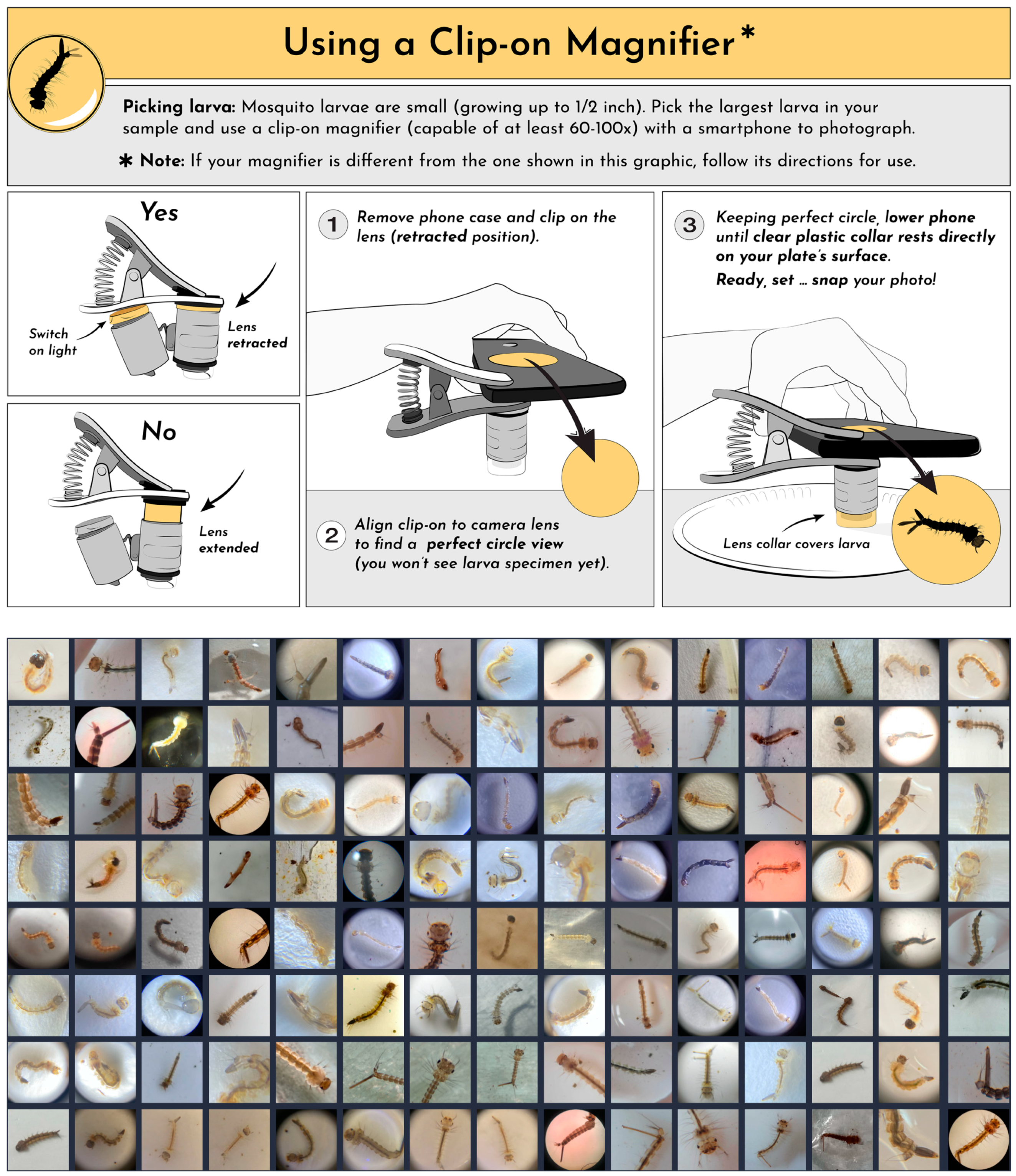News - University of Puerto Rico, Mayaguez Campus
Recent Paper Highlights How The GLOBE Program’s App, GLOBE Observer Mosquito Habitat Mapper Enables Next-Generation Surveillance of Mosquitoes

Images from The GLOBE Program’s app, Mosquito Habitat Mapper’s 2021 Mosquito Habitat Photo Challenge.
A paper published on 27 July 2022 in the journal Insects, “Integrating Global Citizen Science Platforms to Enable Next-Generation Surveillance of Invasive and Vector Mosquitoes” highlights how data from multiple citizen science apps, including The GLOBE Program’s app, GLOBE Observer Mosquito Habitat Mapper and Land Cover, allow the general public to provide images of mosquito specimens and breeding habitats using smartphones.
The paper, authored by Carney, Ryan M., Connor Mapes, Russanne D. Low, Alex Long, Anne Bowser, David Durieux, Karlene Rivera, Berj Dekramanjian, Frederic Bartumeus, Daniel Guerrero, Carrie E. Seltzer, Farhat Azam, Sriram Chellappan, and John R. B. Palmer, states “The mosquito is the deadliest animal on earth, transmitting diseases that cause nearly a million deaths and >700 million infections each year. Yet only relatively few mosquito species are ‘vectors’ that transmit diseases. Unfortunately, identifying these vector species is a difficult and time-consuming manual process.”
“A promising and scalable solution involves ‘citizen science,’ whereby the general public provides images of mosquito specimens and breeding habitats using smartphones. However, data from such previous efforts have lacked the necessary integration for a thorough and global understanding of mosquito presence. Here, we standardize and combine data from multiple international citizen science apps—Mosquito Alert, iNaturalist, and GLOBE Observer’s Mosquito Habitat Mapper and Land Cover—to aid researchers, mosquito control personnel, and policymakers.”
“We also launched coordinated media campaigns that generated unprecedented numbers and types of observations, including successfully capturing the first images of targeted invasive and vector species. Additionally, we used citizen science imagery to develop artificial intelligence software to automatically identify the species and anatomical regions of mosquitoes. Ultimately, we establish a new surveillance system to serve as a united front to combat the ongoing threat of mosquito-borne diseases worldwide.”
To read the paper, click here.
News origin: GLOBE Implementation Office




